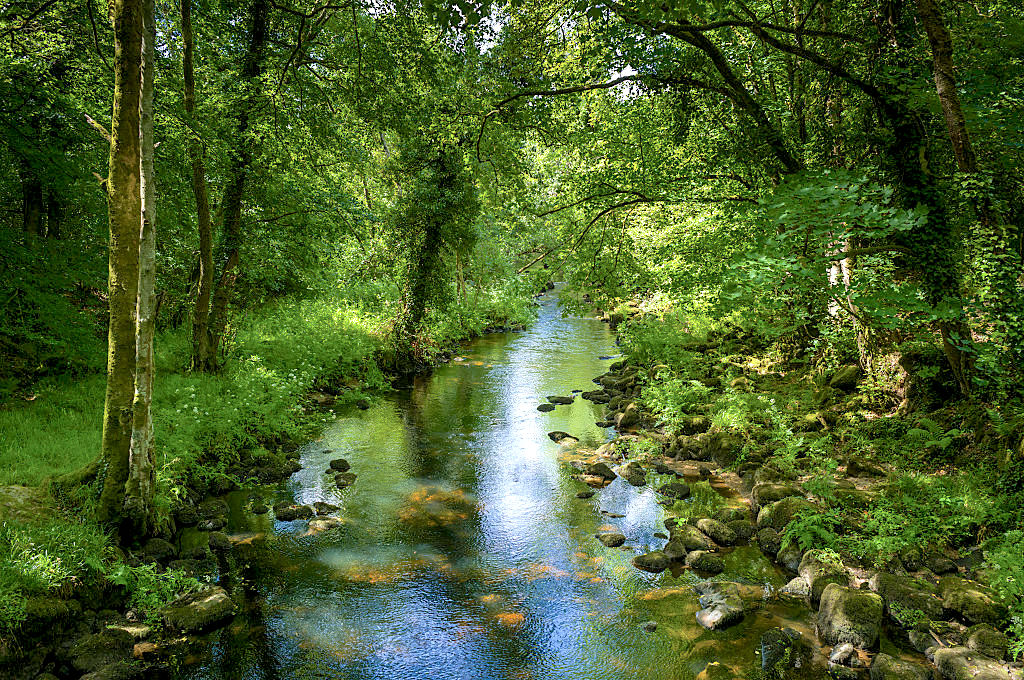Whatever happened to British ecology? I was thinking that when I read two reports in the Times this week, both pretty depressing. The first concerned a new study, based on maps, which suggests that England and Wales have lost almost a third of their grasslands, including wildflower-rich meadows, over the past 90 years. The second was about the ‘catastrophic’ collapse in the number of juvenile salmon in Dorset’s River Frome, described as ‘one of the country’s most important rivers for the species.’ Rivers that had ‘tens of thousands of salmon in the 1980s’ today reportedly have only a few hundred. The head of fisheries at the Game and Wildlife Conservation Trust was quoted as saying that salmon ‘could disappear from our UK rivers in the next 30 years.’
Disappearing grasslands, disappearing salmon. In fact, there’s a lot more that’s disappearing too. The State of Nature Study in 2023 shows that the species of wildlife studied had, on average, declined by 19 per cent since 1970, and described the UK as ‘one of the most nature depleted countries on earth’. One in six species is now at risk of being lost from Great Britain altogether, with the endangered figure for birds, amphibians and reptiles and terrestrial mammals all much higher. Toads? Down 41 per cent between 1985 and 2021. Frogs? There was a 17 per cent reduction in regular sightings of common frogs in gardens between 2014 and 2018. Water voles? Populations have dropped by 94 per cent in the past century. Grey long-eared bats? There are thought to be only 1,000 left. Additionally, there have been declines in over half (54 per cent) of Britain’s flowering plant species. The question is: why hasn’t our disappearing nature made more headlines? Why isn’t it right at the top of the list for those concerned about the environment? Step forward, Climate Change. The point here is not to deny that climate change is happening – in the summer, after yet another scorching hot spell, I argued on this site that it was no longer credible for anyone to deny it – but that putting all the focus on combatting climate change means that we are in danger of neglecting old-fashioned ecological issues, such as conservation and protecting natural habitats.
Too often, ‘tackling climate change’ has meant implementing policies which just clobber ordinary people, whether its making motorists’ lives a misery through LTNs, sky-high parking costs and 20mph speed limits, or raising already high energy bills through green taxes. At the same time, as all this is going on, our countryside is vanishing under concrete at an increasing rate. Rural West Oxfordshire, for instance, is required to build more than 900 new homes each year to meet new increased government targets, meaning that the number of houses in the area will increase by more than a third by 2043. Of course, it’s not just in Oxfordshire where this is happening – it’s all over the country. Parts of Buckinghamshire resemble one large building site: the county has to build 95,000 new homes by 2045. Further north in Cheshire, there are major developments taking place on the A354 from the M6 Junction 17 to Macclesfield. And as for Sussex… well let’s not get on to Sussex, the destruction of which is taking place before our very eyes. The elephant in the room in all this is our population explosion, fuelled by record levels of net migration.
Net migration to the UK in the year up to March 2023 was a mind-boggling 944,000. The 2024 figures have been revised downwards at 345,000, but that’s still an awful lot of people who will need to be housed. Everywhere you travel in Britain you see towns and cities expanding outwards. Urban areas have expanded from 13 per cent of land in 1930 to 20 per cent in 2020. What will the figure be in 2047, just 22 years from now when our population is predicted to have risen by another 10 million? These numbers are surely unsustainable.
Yet rather than discuss the impact that a greatly increased population will have on green spaces, flora and fauna, and the environment generally, think not just about all the new houses needed, but demands on the sewage system, refuse disposal and so on, the focus instead is primarily on climate change. It’s surely time for a recalibration. While climate change does indeed play its part in the decline in flora and fauna – as do modern farming methods such as the use of agrochemicals – population expansion doesn’t get the attention it deserves. This is not a debate about immigration per se, but about the levels and their inevitable environmental impact. If we really are ‘green’, and care about the decline in our natural habitats, it’s a debate we need to be having. And pretty urgently, too.







Comments